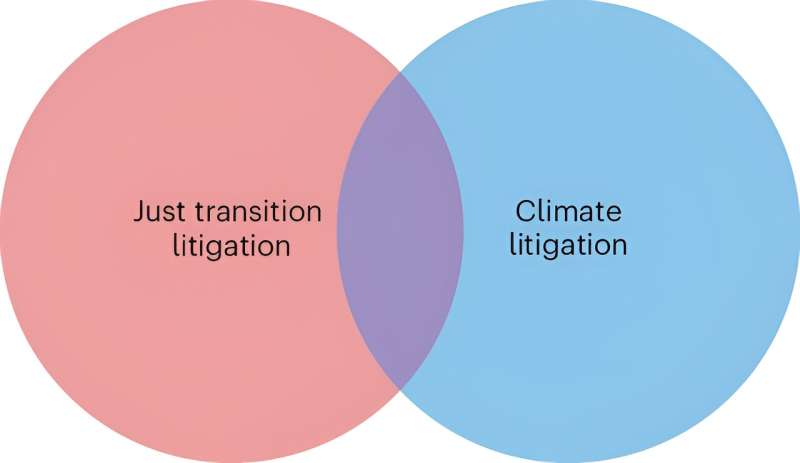As the world accelerates its push towards low-carbon societies, a new study reveals the emergence of “just transition litigation” – legal disputes challenging the fairness and justice of climate policies and projects. This phenomenon highlights the need to balance environmental goals with social equity, ensuring vulnerable communities are not disproportionately impacted. The article explores this complex issue, with insights from experts and real-world examples, such as the Sámi people successfully challenging wind farm construction on their land. Climate change and environmental justice are intertwined, and this blog dives into the challenges of reconciling the two.

The Emerging Phenomenon of “Just Transition Litigation”
As the global community rushes to transition to low-carbon societies and mitigate the impacts of climate change, a new legal phenomenon has emerged: “just transition litigation.” This term refers to legal disputes that challenge the fairness and justice of climate policies and projects, such as the construction of wind farms, biomass plants, and dams.
The study, led by Professor Annalisa Savaresi at the Center for Climate Change, Energy and Environmental Law, University of Eastern Finland, highlights the complex social dilemmas and policy conflicts that arise during this transition. While the push towards decarbonization is essential, it can disproportionately impact vulnerable groups, including Indigenous Peoples, workers, and local residents. The Sámi Indigenous People in Norway, for example, successfully challenged the construction of wind farms on their traditional herding pastures, illustrating the potential of just transition litigation to protect the rights of marginalized communities.
Balancing Climate Action and Social Justice
Central to these legal disputes are issues such as the fair distribution of benefits and burdens from climate policies, the inclusiveness of decision-making processes, and the respect for the rights, identities, and cultures of marginalized communities. The paper introduces a new framework for understanding the justice claims of those affected by climate action, which can serve as a tool for systematic research on just transition litigation.
According to Professor Savaresi, while in recent years much attention has been given to strategic litigation aimed at advancing decarbonization (such as cases against companies or governments failing to reduce emissions), this study shifts the focus to lawsuits that challenge the fairness of climate policies and projects. This type of litigation draws upon various legal bases, including administrative, constitutional, energy, environmental, human rights, labor, and planning law.
Bridging the Knowledge Gap and Addressing the Challenges
Currently, a significant knowledge gap exists due to a lack of comprehensive, systematic data collection on these legal disputes. The authors call for the creation of a dedicated dataset to track these cases and analyze their impacts on law, governance, and society. Understanding these dynamics is crucial, as this type of litigation has the potential to slow climate mitigation efforts.
This is all the more urgent at a time when governments in the EU, the UK, and the US are announcing plans to “cut the red tape” and expedite the transition. By recognizing the importance of balancing environmental goals with social justice, policymakers and stakeholders can work towards a more equitable and sustainable future, where the benefits and burdens of climate action are shared fairly among all members of society.
